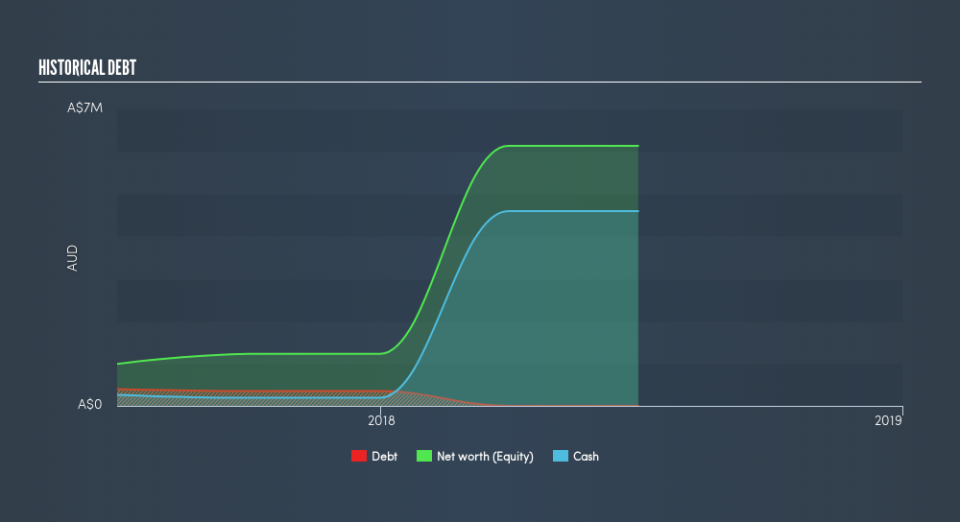Is ReadCloud Limited (ASX:RCL) A Financially Sound Company?

Zero-debt allows substantial financial flexibility, especially for small-cap companies like ReadCloud Limited (ASX:RCL), as the company does not have to adhere to strict debt covenants. However, it also faces higher cost of capital given interest cost is generally lower than equity. While RCL has no debt on its balance sheet, it doesn’t necessarily mean it exhibits financial strength. I recommend you look at the following hurdles to assess RCL’s financial health.
See our latest analysis for ReadCloud
Does RCL’s growth rate justify its decision for financial flexibility over lower cost of capital?
Debt capital generally has lower cost of capital compared to equity funding. However, the trade-off is debtholders’ higher claim on company assets in the event of liquidation and stringent obligations around capital management. The lack of debt on RCL’s balance sheet may be because it does not have access to cheap capital, or it may believe this trade-off is not worth it. Choosing financial flexibility over capital returns make sense if RCL is a high-growth company. RCL delivered a strikingly high triple-digit revenue growth over the past year, therefore the company’s decision to choose financial flexibility is justified as it may need headroom to borrow in the future to sustain high growth.
Can RCL pay its short-term liabilities?
Since ReadCloud doesn’t have any debt on its balance sheet, it doesn’t have any solvency issues, which is a term used to describe the company’s ability to meet its long-term obligations. However, another measure of financial health is its short-term obligations, which is known as liquidity. These include payments to suppliers, employees and other stakeholders. At the current liabilities level of AU$770k, it seems that the business has been able to meet these obligations given the level of current assets of AU$5.2m, with a current ratio of 6.72x. However, many consider a ratio above 3x to be high.
Next Steps:
As a high-growth company, it may be beneficial for RCL to have some financial flexibility, hence zero-debt. Since there is also no concerns around RCL’s liquidity needs, this may be its optimal capital structure for the time being. Going forward, RCL’s financial situation may change. I admit this is a fairly basic analysis for RCL’s financial health. Other important fundamentals need to be considered alongside. You should continue to research ReadCloud to get a more holistic view of the stock by looking at:
Historical Performance: What has RCL’s returns been like over the past? Go into more detail in the past track record analysis and take a look at the free visual representations of our analysis for more clarity.
Other High-Performing Stocks: Are there other stocks that provide better prospects with proven track records? Explore our free list of these great stocks here.
We aim to bring you long-term focused research analysis driven by fundamental data. Note that our analysis may not factor in the latest price-sensitive company announcements or qualitative material.
If you spot an error that warrants correction, please contact the editor at editorial-team@simplywallst.com. This article by Simply Wall St is general in nature. It does not constitute a recommendation to buy or sell any stock, and does not take account of your objectives, or your financial situation. Simply Wall St has no position in the stocks mentioned. Thank you for reading.

 Yahoo Finance
Yahoo Finance 
